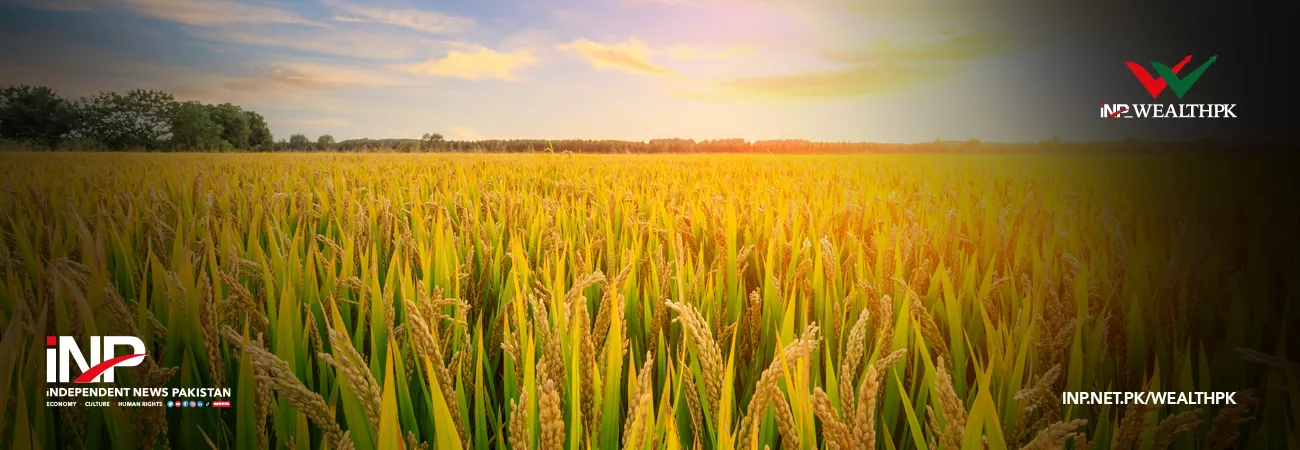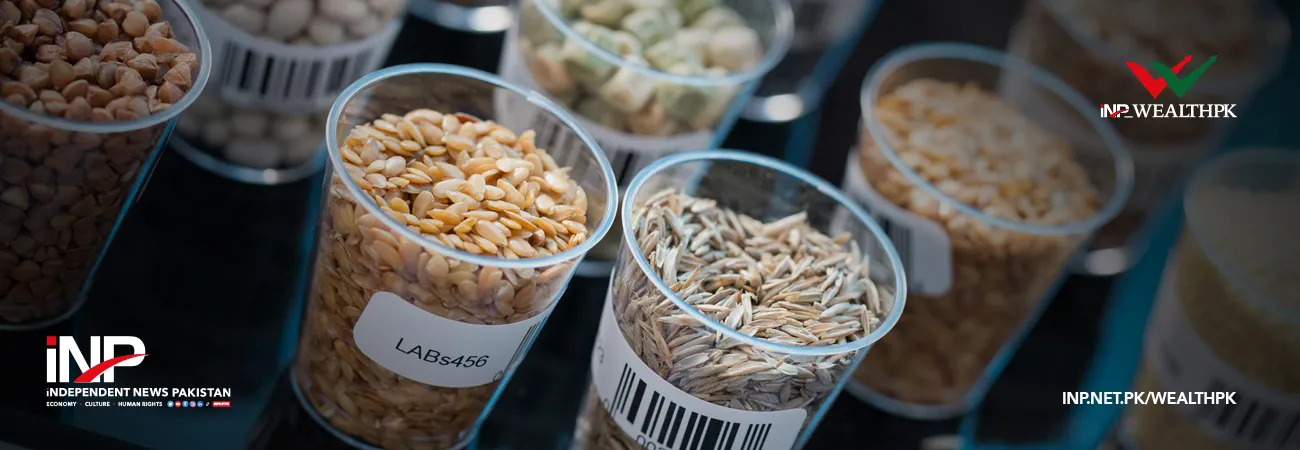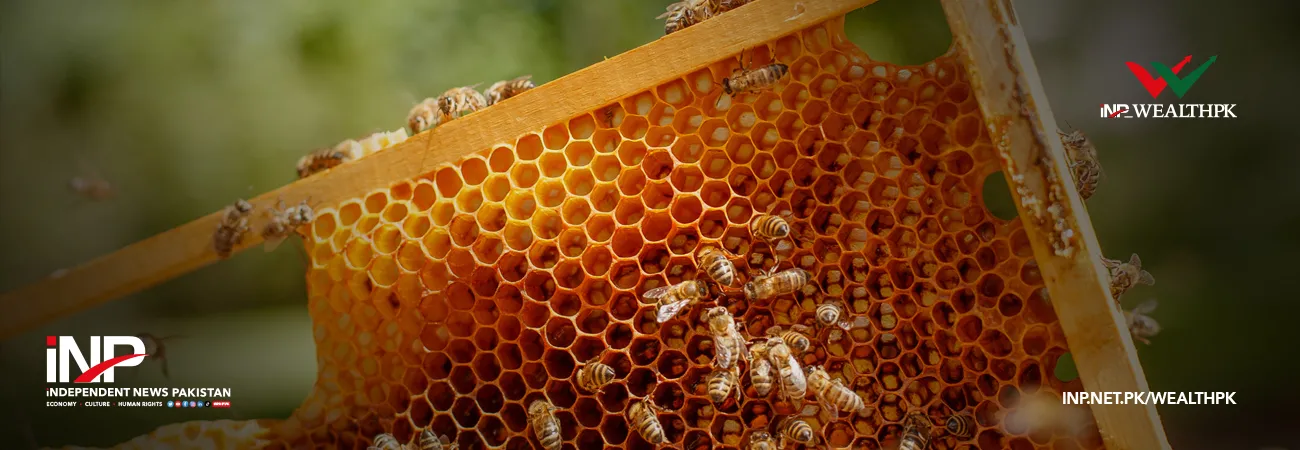INP-WealthPk
Raza Khan
Climate change is making continuous shift in temperatures around the globe that impacts agricultural products including rice. Rice is a water intensive crop and climate change is considered to have long-term repercussions for its growth and sustainability. Almost half of humanity consumes rice as their staple diet. Muhammad Raza, a rice expert and exporter, and ex-senior vice chairman of Rice Exporters Association of Pakistan (REAP), told WealthPK that the recent floods in Pakistan indicated the level of impact of climate change on the country and its agriculture. “Present heavy rains can also lead to no rains in future.
Either way, preparation and planning for climate change impacts is needed for sustainability and livelihoods of agriculture sector, especially the rice crops,” he said. Rice is the backbone of global food security and the bulk of global rice supply originates from irrigated systems which are to some extent shielded from immediate drought effects. However, this is not the case in Pakistan,” Raza said. Rice is Pakistan’s second largest exported commodity after textiles, Raza mentioned, adding that the country was in dire need of comprehensive strategy to sustain the production and export of rice.
“We need to feed our people, as well as continue and increase our rice exports,” he said. During the last fiscal year 2021-22, over 4.877 million metric tons of rice worth $2.511 billion was exported from Pakistan against 3.684 million metric tons worth $2.041 billion in 2020-21. The expert said that urgent measures were needed to mitigate the impacts of climate change on rice. Raza cited an example from a study conducted in Thailand which says rice crop can resist the negative impacts of climate change by adoption of modern techniques along with new research of varieties.
“Results of the study in Thailand indicate the need to adopt strategies like using appropriate local rice varieties with higher yield under water shortage, improving soil fertility by using crop residues and operation and maintenance of irrigation systems,” he said. He was of the view that the impact of climate change on rice production also has broader implications on the animal feed industry. “Its by-products are now also used in a variety of applications for human and animal use,” he added. Raza informed that overall, higher temperatures can adversely affect rice yields in Pakistan.
“It is important to note that the water usage for rice in Pakistan is very high,” Raza said. “Around 3,000 to 5,000 litres of water is consumed in Pakistan to produce one kilogram of rice,” Raza informed. He said that underground water level was gradually falling in Pakistan due to droughts and climate change. “This all happened due to old methods of farming, wastage of water in the canals, and lack of technology,” he added. “There will be less water available for rice cultivation after few years so farmers should opt for varities of rice which are sustainable in less water,” Raza suggested.
He said the Government of Pakistan along with the rice industry needs to work towards future sustainability of the rice crop. Dr Masood Arshad, Director at World Wide Fund for Nature (WWF), said that Pakistani farmers need to modify their rice production methods to ensure higher productivity while using less resources and preserving environment. “It is not possible to sustain the rice production in Pakistan with current cultivation practices and rapidly changing climate,” Masood said. “Farmers need to make rice production eco-friendly using modern technologies,”
he said, adding that rice is not only second largest source of food for the people in Pakistan, but also a source of earning for thousands of families. He said that farmers need to be educated about resource management while growing rice crop. “The cost of rice production can be reduced significantly,” he maintained. Dr Masood said Sustainable Rice Platform (SRP) standard for rice cultivation has 46 requirements that need technical knowledge and skills to understand, making it difficult for smallholder farmers to adopt the standards without technical support.
Credit : Independent News Pakistan-WealthPk













